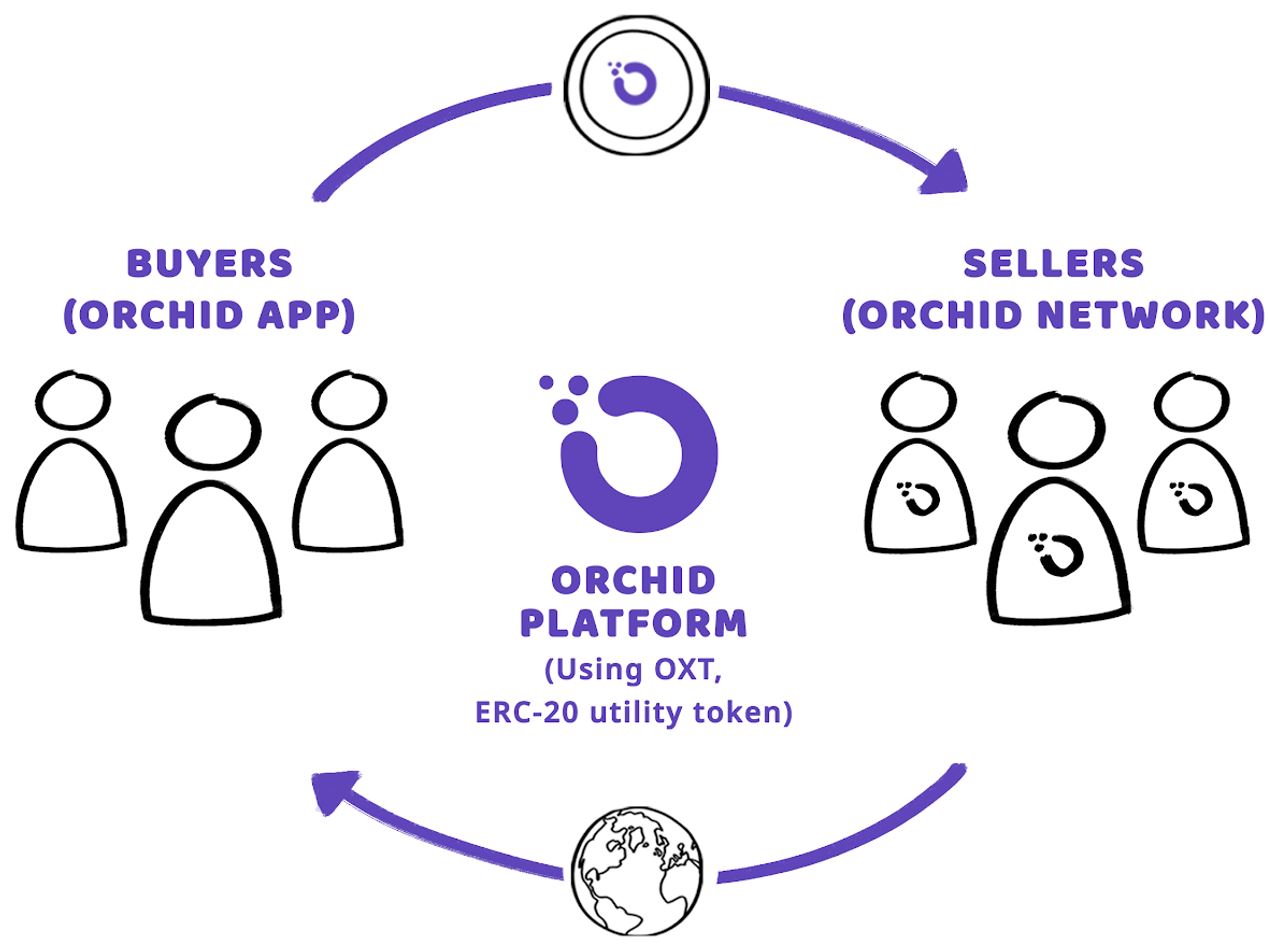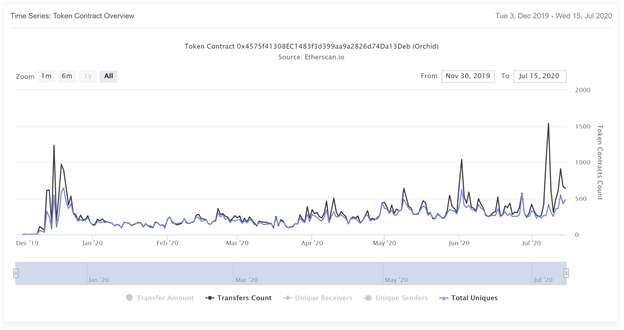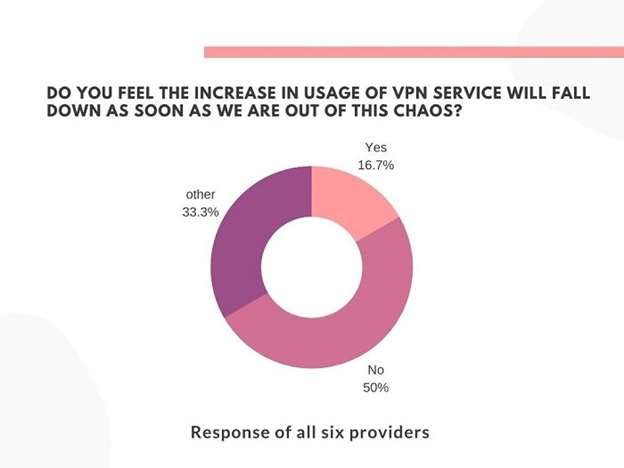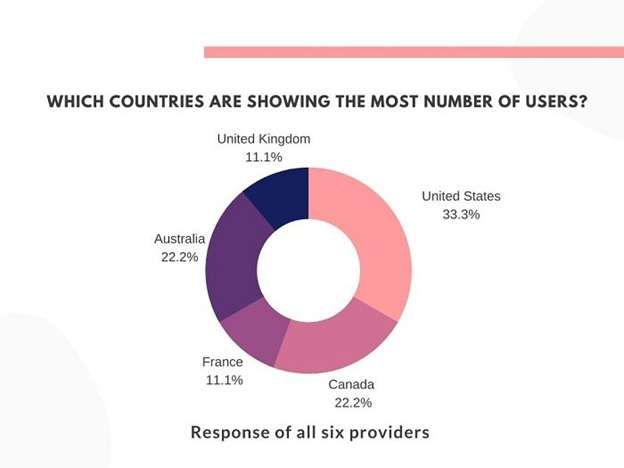
INTRODUCTION
One of the biggest hurdles this industry keeps asking time and time again to the point where the question becomes mundane is: “When will mass adoption happen?” Ask this to a bunch of industry leaders and you'll receive a concoction of answers that range from general philosophical reasonings to banking on the price of Bitcoin hitting that 1 billion USD value range stemming from the forecasts of the hotly debated stock-to-flow model. More of that here. Or perhaps we are just waiting for a sudden cataclysm to hit us in the face, woke by the opportunity, that is BLOCKCHAIN. Because right now is still not it. But two caveats that really act as a harbinger to “somewhat” adoption we think are already in front of us:
1. The year of 2020 emphasizing privacy in our internet lives
2. Applicability
In short, the Orchid VPN is a decentralized VPN platform powered by the Ethereum protocol allowing users to fairly pay for VPN bandwidth with the native ERC-20 token, OXT.
Stay with me now.
Ok so how does a decentralized VPN network give users a better experience than a centralized VPN??
Well that's where the team at PANews went to dig in as we had a chance to speak with the founder himself, Dr. Steven Waterhouse (We'll use his nickname to refer to him as Seven in this article for simplicity).

As we spoke with him one on one, the calm, cool, subtle British accent really accentuated his conspicuous vendetta of maintaining privacy and the immediate need for it. When asked about his thoughts around the FATF Travel Rule and other fun on-chain surveillance companies , he smoothly muttered,
"…Well as being an early investor of Zcash, I'm sure you know how I feel about the FATF Travel Rule".
Most people in the western world really have no need for VPN usage unless they are deliberately trying to circumvent secret government spy agencies to engage in nefarious activities such as….well I'll let you fill in that blank. Take for example the US, everything online for the most part is free to access (unless you work for a Fortune 500 corporation that blocks everything online while you are in the office we leads to the question of is that morally right? That's for a different topic). But in countries where governments clamp down on what you can and cannot see on the internet, the VPN is the most sought after method of being able to access sites that are purposely blocked. But VPNs do have its downsides…
As mentioned in the Orchid Whitepaper (which is a must read if you want to have a good understanding of legitimate user applicability to decentralized applications):
"Users have little assurance that their VPN provider is not secretly logging and sharing data due to government coercion or the lure of additional revenue. The recurring payment and pricing models of VPNs create lock-in effects, preventing users from cheaply and rapidly switching between providers when one is blocked or slow. Current peer to peer systems such as Tor[1] or I2P[2] construct multi-hop circuits to hide route information from any single party. However these systems are free and thus suffer in terms of both performance and security. Performance and quality suffers because of poor incentives and the very limited supply of donated free bandwidth."
So with like many traditional models that veer on a centralized model, they become exposed and lose the trust of its users. And by applying the cypherpunk attitude towards what we have today in making things easier and fair, we use code and the blockchain model to implement those ideals. And this is where Orchid comes in.
To quickly restate, Orchid is a decentralized platform for VPN usage allowing users to fairly pay for their VPN usage through transparent bandwidth pricing provided by “multi-hop” node suppliers. This service is paid via OXT and current VPN providers are able to become a bandwidth supplier by staking their OXT. Giving OXT value in an intricate token economy. But as staking has become target for “letting the rich get richer” and prone to systematic attacks, the team at Orchid has implemented a withdrawal delay longer than the time it takes for the ecosystem to detect and react to a systematic attack. “So a sufficiently long withdrawal delay is more likely to create an additional loss for the attacker when they finally end the attack and sell their large OXT position.”

Since its launch late last year, Seven mentioned user growth has definitely been felt but no specific data was mentioned. We would assume less than a million users considering that as mentioned in their Whitepaper, current scaling capacity caps at a few million due to Ethereum's max tx throughput of around a dozen per second. Of course that could all change once “Serenity” falls from above us but this question is most likely more sanguine than the former. But from what we can see from etherscan, activity has been ticking up since the beginning of the year.

But Orchid's mission is indirectly not waiting for that “mass adoption” to happen. It's more or less leveraging what we've been needing for as our information online becomes more and more susceptible online. Seven can attest to this as a former victim himself, having his credit cards, bank accounts, online accounts, etc. hacked and stolen (thankfully not his private keys as he was smart enough to not leaving his crypto on an exchange's wallet).
A recent report done by a “cyberlibertarian activist and an internet freedom fighter” on the surging use of VPNs during the coronavirus period shows that this is a trend that will persist even after the pandemic period ends.

And a matter of fact, despite what you would think, the US comes out on top for the most number of users during the pandemic:

If anyone has used VPNs before, there's not only the issue of properly and smoothly connecting to a server, but there's also the issue of paying a substantial monthly or yearly fee that you become locked into. And if you do your own research, the more popular and highly used VPN providers have fees that wouldn't add up to the type of service they actually provide. Doesn't matter if you use it for a short amount of time or on an ongoing basis, the price doesn't necessarily match what you get. With Orchid, users can create “customizable budgeting algorithms to determine a current spending cap based on the user's balance and other parameters such as a target timespan representing how long the budget should last. For example,a user can load $50 worth of OXT into their nanopayment wallet and instruct the client to budget that money out over a year of bandwidth purchases. The client software then uses this budget to determine a limit on how much to pay over time.” As Seven tells us, “the platform allows users to query data on bandwidth”. The price discovery is in the users' own hands.
CONCLUSION
For a project that has raised $48 million back in 2017 from some heavyweight investors, the time is now to see what's next. And along the way they've made it just so much easier to users to come on board and start surfing the web privately without having to “buy OXT and ETH, run smart contracts, transfer keys and install a web3 browser. Now, there's an app for that…” as they have recently been added to the Apple app store.
But if it all sounds too good to be true, why haven't people been flocking to Orchid's protocol? As a matter of fact, decentralized VPNs isn't something Orchid became the first to implement, providers such as Mysterium, Tachyon, and the Brave browser have their own decentralized VPNs for users to use (You could read up on the different decentralized VPNs here). And then there is the notorious TOR network being the greatest example of FREE P2P networking being around for years already.
The Orchid VPN, just like any other decentralized VPN attempt still suffers from having the exit nodes of the network being compromised or logging your internet information. And once your information leaves the VPN network, your information is still vulnerable, let alone having to deal with DNS leaks.
And then there are the uncertain latency issues. To sum it up, there is a reason why the fastest VPNs are more expensive and the free or cheaper alternatives are slower. At the end of the day it's a trade off.
Last but not least, the bigger issue that a decentralized user can be confronted with is the rare possibility of having someone else use your IP address, due to bandwidth sharing, and being accused of something as heinous as downloading CP when you actually did not.
But let's not write these decentralized VPN projects out just yet. Like with any blockchain project, the all too easy excuse to defend the lack of adoption boils down to: “It's still too early”. And for better or worse on how we critique each type of option, the greater takeaway is that, there are options. And that is what the blockchain movement would like people to envisage. A future where we don't have to solely rely on a centralized entity for everything.
The article is published for information only and does not constitute investment advice. Please contact us at hello@panony.com to report any sensitive or inappropriate information.









